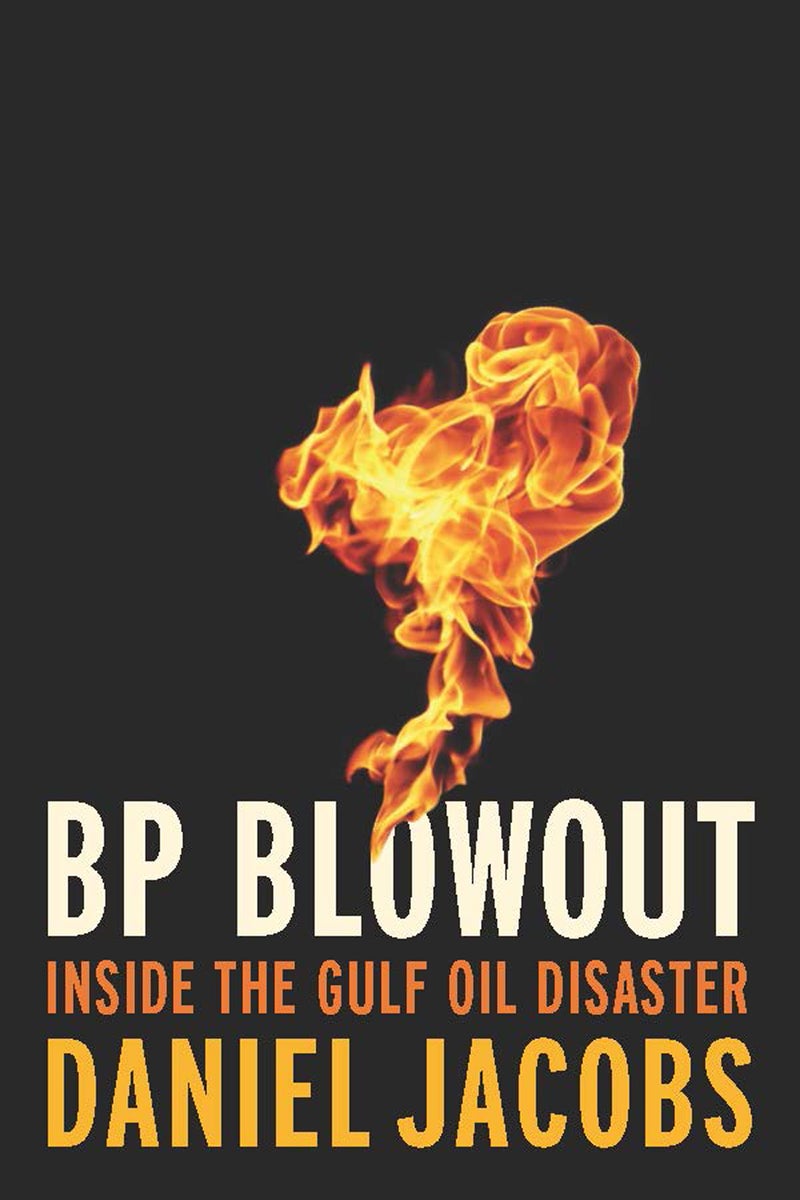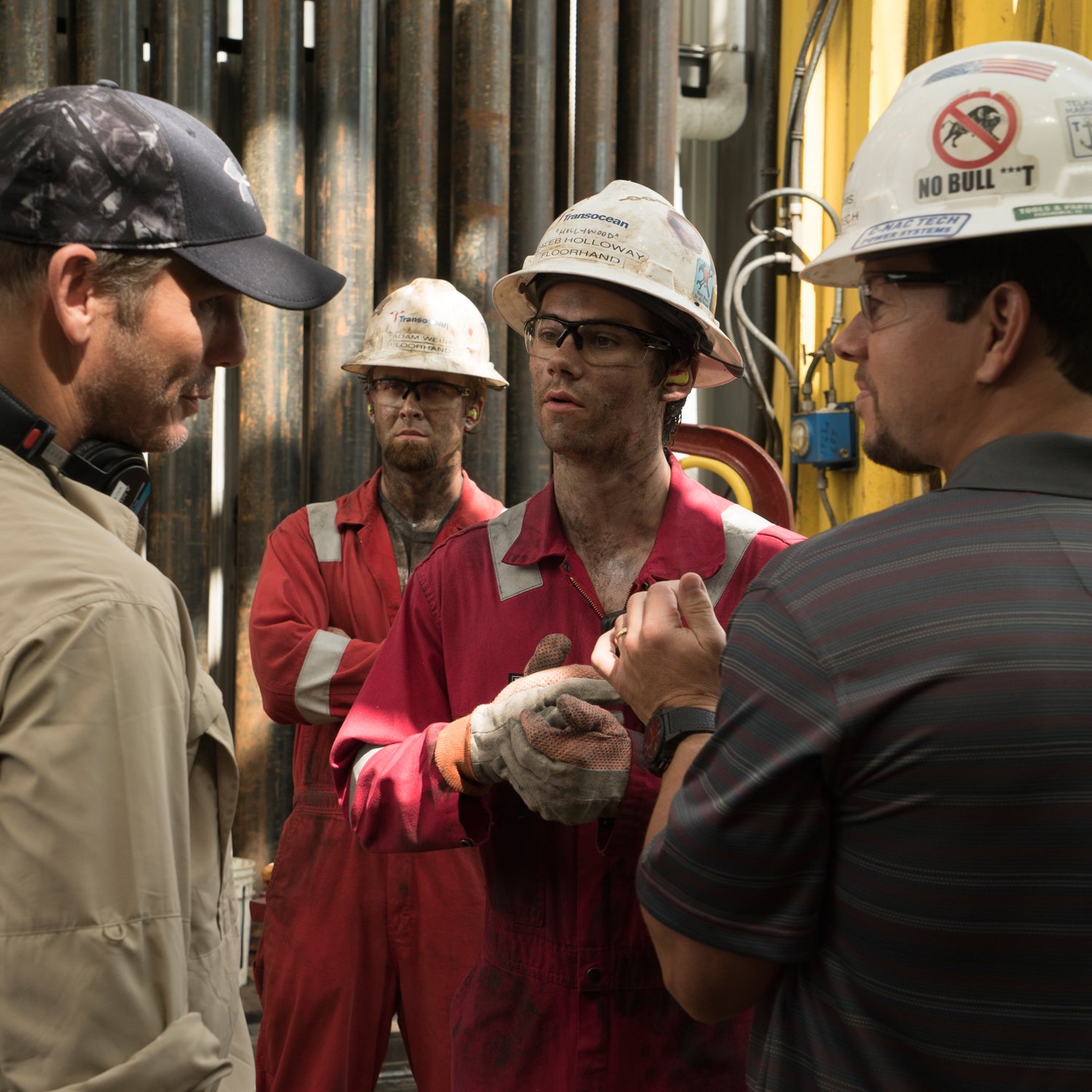It seemed inevitable that the deadly 2010 explosion of the BP-operated Deepwater Horizon offshore drilling platform, which caused millions of gallons of oil to gush into the Gulf of Mexico, would eventually get the Hollywood treatment. It’s also unsurprising that a former Department of Justice lawyer would pen an account of the spill that is cast in nearly as dramatic fashion—“the story that neither BP nor the federal government wants heard,” according to its publisher, the Brookings Institute Press. Both were released this fall, within weeks of each other.
Unfortunately, neither the movie, Peter Berg’s , nor the book, Daniel Jacobs’ , do justice to one of the worst environmental disasters in U.S. history. Where a dramatized account could at least convey the human side of the disaster to a wider audience, Deepwater Horizon feels more like an action movie with a side helping of workplace and familial drama. And where a nonfiction account could bring fresh facts and clarity, BP Blowout fails to deliver many new insights. That well from hell, as those who labored on the rig , still elicits more questions than answers.
BP Blowout, released October 18, is far from the first nonfiction account of the disaster. emerged within the year following the accident. But even with six years of distance, Jacobs hasn’t managed to find much unexplored terrain in terms of what Deepwater Horizon can teach us as energy consumers. Readers get a close look at everything from the causes of the accident to the missteps that both BP and the government made in their responses. It’s informative for those who haven’t read much about the trials, settlements, public-relations campaigns, and attempts by individuals to defraud BP through false claims tied to the accident. But despite Jacobs’ insider status, the book doesn’t bring much to the table that hasn’t been reported before. It misses an opportunity to advance the conversation around the legacy of the spill or provide lessons on how we might be better prepared for the next major catastrophe involving an extractive industry.

In one section, Jacobs details the ways in which John Browne, the BP CEO who resigned three years before the spill, painted BP as a concerned corporate citizen that was investing heavily in renewable energy yet in reality was a masterful greenwasher. The company’s focus on growth and promoting a green image obscured , which under Browne’s successor, Tony Hayward. “We were all hoodwinked by John Browne,” Frances Beinecke, former president of the Natural Resources Defense Council and a member of the National Commission on the BP Deepwater Horizon Oil Spill and Offshore Drilling, tells Jacobs. And that’s the last Jacobs says about it, when he could have explored how Browne ingratiated himself with big environmental NGOs—and, more important, with regulators.
Jacobs also discusses BP’s poor safety record prior to 2010, including a 2005 explosion at a BP refinery in Texas that killed 15 people. But he doesn’t explore how BP’s environmental record compares to that of Exxon, or Chevron, or any other large oil producer.
Still, Jacobs does bring to light the abuse of the system set up to reimburse those whose livelihoods were affected by the spill. Through Freedom of Information Act requests, he determined that the Department of Justice brought criminal cases against more than 300 individuals who filed false claims seeking monetary rewards from BP, and that the DOJ won 236 of those cases and gave 75 individuals federal prison sentences, with one as high as 15 years. Yet, Jacobs points out, only five individuals were convicted of crimes related to the blowout, and none of them will serve time in prison.
While BP Blowout explores the disaster as a series of court battles and corporate and political spin campaigns, Deepwater Horizon, which premiered September 30, focuses on the human toll. The movie, which is the first feature film about the disaster, follows chief electronics technician Mike Williams (played by Mark Wahlberg) and the ten other workers aboard the rig during the explosion and subsequent fire, as well as their co-workers and families. John Malkovich portrays a truly devilish Donald Vidrine, one of BP’s managers on the rig who faced manslaughter charges that were later dropped.
Unsurprisingly, the movie oversimplifies at times, especially when it comes to laying blame for the blowout. Berg makes no effort to explore the degree to which Transocean, the company that owned and operated the Deepwater Horizon rig, was culpable for the accident. That’s despite the fact that, as noted in Jacobs’ book, Transocean was apportioned 30 percent of the blame in private-party lawsuits. (The Department of Justice said that BP bore 67 percent, and Halliburton, tasked with placing the cement cap on the well that later failed, bore just 3 percent.) Instead, the movie holds tight to the image of Transocean as victim, pressured by BP to speed the well’s closing because the project was weeks behind schedule. Because key survivors declined to consult on the movie— they signed gag orders with BP to receive settlements—it’s hard to know how authentically the events are portrayed, though the sequence of decisions and major events that resulted hew closely to what’s available in court records.
Ultimately, the movie fails to deliver on its potential by never developing characters deeply enough for the viewer to make real connections. Those looking for a more profound treatment of the disaster’s human toll would be better off watching Margaret Brown’s 2014 documentary, , and hearing from the real people who were most affected by the spill.
The best writing and filmmaking have the potential to connect an audience to tectonic shifts in the timeline of a place or a culture in a deep, visceral manner. But neither Berg’s film nor Jacobs’ book achieve that admittedly ambitious goal. Six years after the fact, we still need coverage of the spill that tries harder—digs deeper or at least outrages us—because we don’t want it to happen again. And we still can’t be sure that it won’t. In his book, Jacobs details how neither the federal government nor the energy extraction industry have taken any meaningful steps to improve safety regulations for offshore drilling. With the backdrop of a significant recent uptick in deepwater drilling in the Gulf of Mexico, he succinctly concludes: “There is little cause for optimism.”


